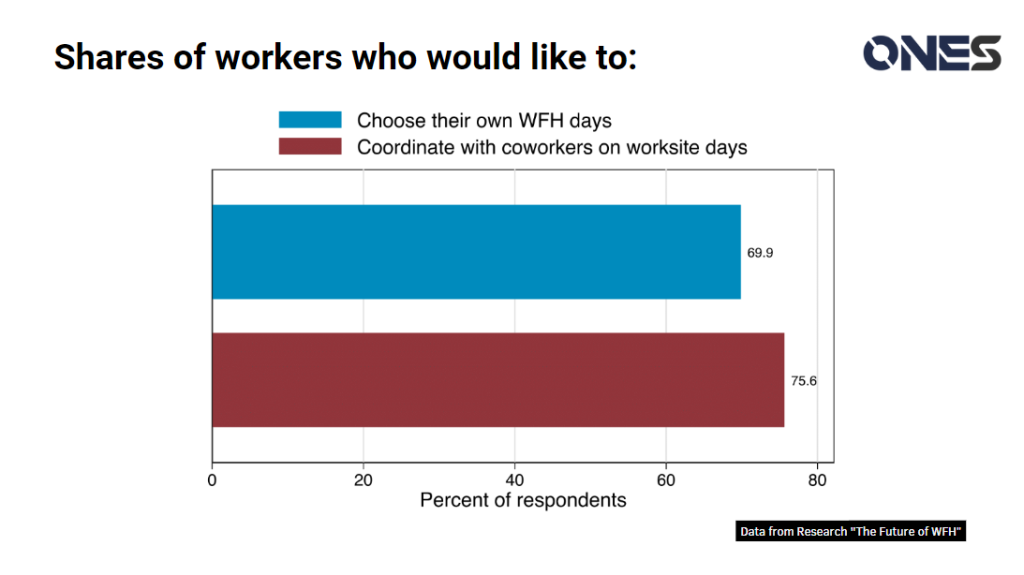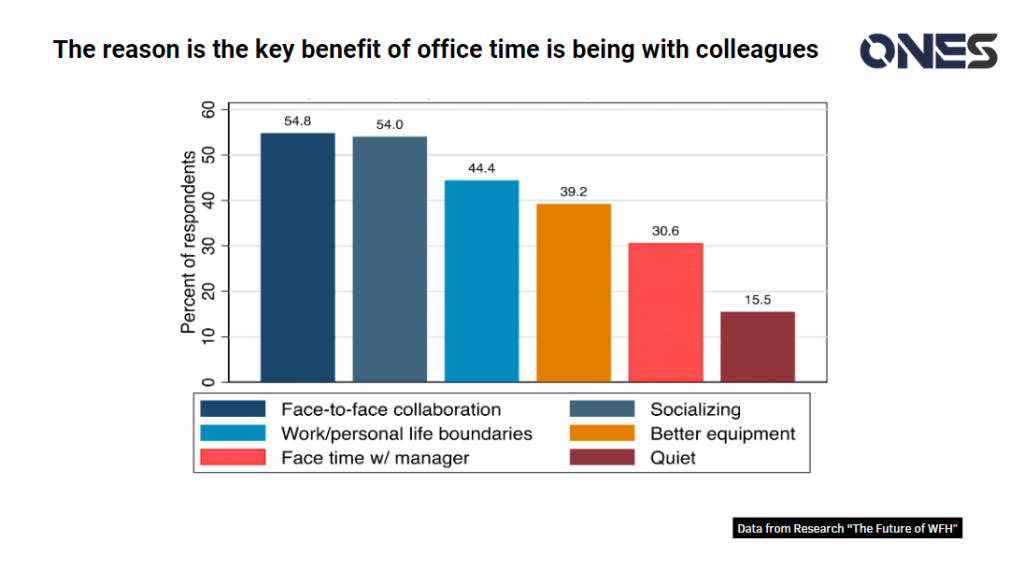In the post-pandemic era, lots of leaders express that they have “productivity paranoia”, and find it highly challenging to have faith in their workers’ productivity due to the transition to hybrid work.
Would there be some way that can help to relieve these kinds of “productivity paranoia” for the decision-makers? This latest research from a Standford economist of WFH Research could help.
Table of Contents
Why does hybrid working still stay?
This research “The Future of WFH” from Standford started in 2004. Currently monthly surveys of 10,000 US working-age adults and 1,000 US firms and discussion and consulting with 100s of organizations globally.
Based on this research, there are several benefits of hybrid working explain why this is becoming dominant:
Employees are happier
Employee value of a hybrid work environment is comparable to their value of an 8% salary raise. This indicates that even if their company offered them almost 10% more money to go back to work full-time, they would choose a hybrid policy—or to keep the one they now have.
Retain talents
Referring to the paper “How Hybrid Working From Home Works Out“, marketing and finance professionals found WFH reduced quit rates by 35%.
(Learn more about how hybrid working retain talent: GitLab: Flexibility is critical for retaining IT talent now)
Productivity is increased
Paper “How Hybrid Working From Home Works Out“, natural experiments and survey research suggest a small productivity boost from WFH of around 3% to 5%
(Learn more: What is Employee Productivity and how does it relate to Hybrid Working now?)
Supports diversity, equity, and inclusion
Data suggests that Hybrid-WFH can help support diversity in various dimensions, like 86% of Latinx / Hispanic, 81% of Asian/ Asian American and Black would prefer a hybrid of full remote work arrangement.
Hints about Hybrid WFH
Employees desire both autonomy and coordination

Decision-makers may struggle between providing enough flexibility to workers and maintaining coordination within the working group.
Based on the survey, actually employees desire both autonomy and coordination: 69.9% of people prefer being able to choose which days can work from home, while 75.6% of them would like their employers to set a policy that determines who works from home on which days.

Who decides which days and how many days employees work remotely? Based on the research, firms with 250+ employees would determine at the team level or by company. For smaller firms with less than 25 employees, the remote work pattern will be declined to be fully decentralized.
Number of days for WFH

Survey also questioned, “As the pandemic ends, how often would you like to have paid workdays at home? For each day last week, did you work a full day (6 or more hours), and if so where”.
Based on the responses to the question, only 16.3% of respondents would prefer rarely or never WFH after the COVID-19 pandemic, and most of them (83.7%) would like to have more than 1 day that can work from home.
Social capital: the benefit of working in the office

For asking about the top 3 benefits of working on an employer’s business premises, the employees answer as follows:
- Face-to-face collaboration (54.8%)
- Socializing (54.0%)
- Work/personal life boundaries (44.4%)
Employees would like to come back to the office for 1 hour for communicating with colleagues, not for free bagels and drinks.
Action can be made for the most of Hybrid WFH
Stanford economist Nick Bloom stated some actions leaders can make the most of Hybrid WFH which can set culture to achieve “office time = group social time“:
- Coordinate your team to come in on the same 2 or 3 days every week
- Promote in-person meetings, events, coffee, training, and lunches on those office days
- Suggest cross-office zoom meetings and reading, writing, data, etc on home days
- For new hires (< 1 or 2 years), add an extra day in the office for mentoring
Learn more about productivity in the hybrid working era: https://ones.software/blog/?s=Productivity+
Develop your own hybrid office with our smart office system: https://ones.software/

